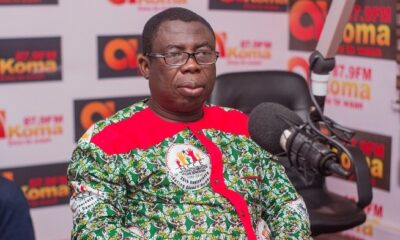Published
5 years agoon
By
Frimpong
The ruling New Patriotic Party (NPP) will be re-elected in the 2020 Ghana election, the Economist Intelligence Unit (EIU) has once again predicted in its latest report.
“The Economist Intelligence Unit believes that it will be difficult for the NDC under Mr Mahama to portray itself as the better custodian of Ghana’s economy. We therefore expect Mr Akufo-Addo and the NPP to secure re-election,” it emphasized.
Acknowledging that the COVID-19 pandemic will bring pressure on the West African country’s economy, the EIU in its April 2020 report said that will not affect voters’ decision since they see the Akufo-Addo-led government as the best option to manage the economy.
“The government, led by the ruling New Patriotic Party (NPP),faces the challenge of seeking to contain fiscal pressures caused by the coronavirus pandemic and the sharp drop in global oil prices while limiting the associated socioeconomic damage.
“The next national elections are due in December 2020. The Economist Intelligence Unit expects the NPP to retain power, as the party is seen as a better custodian of the economy than the opposition National Democratic Congress,” the EIU stated.
The report mentioned some of the NPP government’s programmes such as One District, One Factory among others as driving forces to convince the electorate to keep the government in power.
“The government’s ambitious industrialisation programme is enjoying some success, with investment expected to recover once the virus subsides. Nonetheless, overall progress will continue to be hampered by structural weaknesses and regional imbalances.
“Driven by falling oil prices and operational difficulties in some oilfields, the economy will contract by 1% in 2020. Real GDP growth will then rebound to an average of 5.7% a year in 2021-24, as the impact of the pandemic fades and oil prices and output both recover,” the reported stated.
It added: “The government’s industrialisation push and moves to strengthen the banking sector will benefit non-oil economic growth over the medium term, although the cost of capital will remain a constraint on some businesses, particularly small and medium-sized enterprises. Following a marked weakening in 2020—reflecting a deteriorating currentaccount position and investor nervousness ahead of the elections—the pace of cedi depreciation will slow in 202124
as the hydrocarbons sector ramps up production and prices rise.
Inflation will average 8.6% in 2020-24, staying within the central bank’s 6-10% target range.
“The current-account deficit will gradually narrow in 2021-24 as external conditions improve, reaching 0.3% of GDP by the end of the forecast period.”
President Akufo-Addo is in for a tough fight for reelection in December against former leader John Mahama.
The EIU therefore concluded: “The campaign for the 2016 election was dominated by public concerns over a faltering economy, which many Ghanaians still associate with Mr Mahama. Ahead of this election, the NPP has focused on infrastructure development (such as improving internet and electricity access, as well as roads, in rural areas) and outlined ambitious growth plans for cash-crop yields, which would
bolster rural incomes. Despite the uncertainties posed by the pandemic, The Economist Intelligence Unit believes that it will be difficult for the NDC under Mr Mahama to portray itself as
the better custodian of Ghana’s economy. We therefore expect Mr Akufo-Addo and the NPP to secure re-election. However, if the NDC can present a coherent challenge and hold the NPP to account on its unfulfilled campaign promises—such as faster progress on infrastructure development—the elections could be closely contested.”
Source: dailymailgh
Election Petition: Supreme Court judgment will shock law students – Mahama


Man reportedly dies at Supreme Court after Election petition ruling


Embrace Unity, Compassion And Maturity – Rawlings Congratulates Biden


NCCE constrained to educate public on elections – A/R boss


Government considering free electricity – Osei Kyei Mensah Bonsu


2020 Election: Don’t change current voters register – PPP


Poll: Virginia governor’s race in dead heat

























